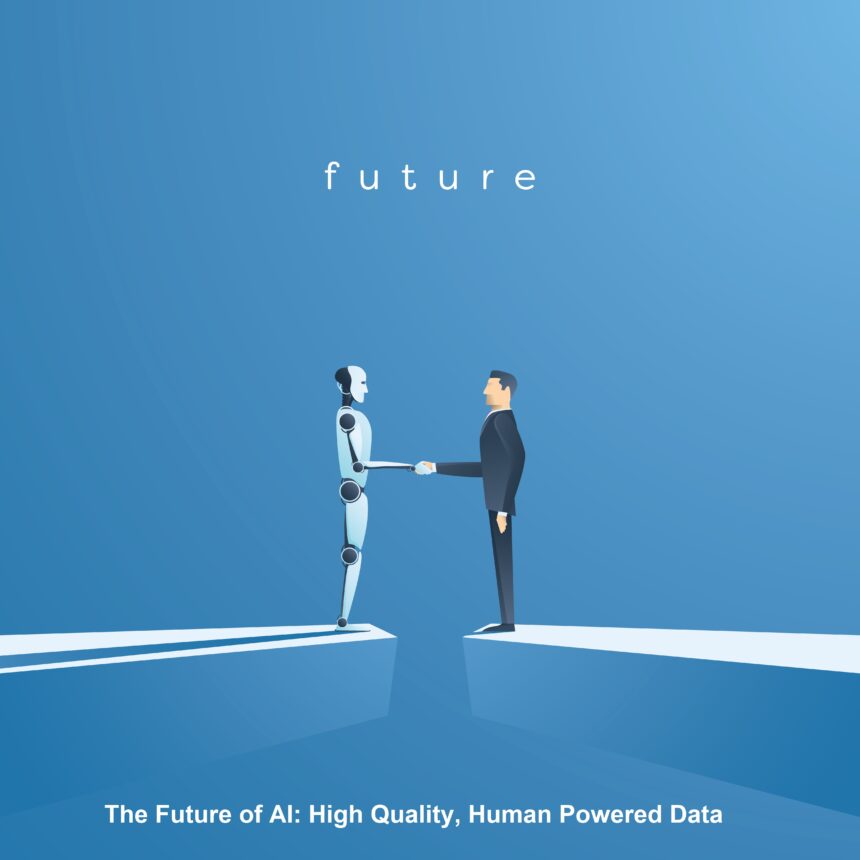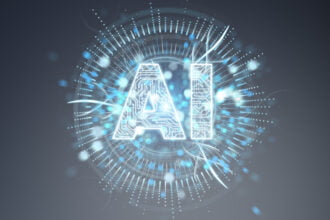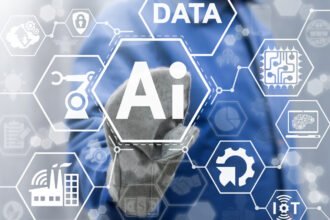Artificial Intelligence (AI) has significantly altered how work is done. However, AI even has a bigger impact by enhancing human capabilities. Research conducted by the Harvard Business Review found that the interaction between machines and humans significantly improves firms’ performance.
Successful collaboration between humans and machines enhances each other’s strengths, including teamwork, leadership, creativity, speed, scalability, and quantitative capabilities.
How Humans Collaborate with Machines
For the successful collaboration between machines and humans, humans are required to carry out three crucial roles:
- Training the machines to carry out specific roles.
- Explaining the outcomes of those tasks.
- Sustaining the responsible use of machines.
Human labeling and data labeling are however important aspects of the AI function as they help to identify and convert raw data into a more meaningful form for AI and machine learning to learn.
Artificial Intelligence, in turn, needs to process data to make conclusions.
AI also needs continuous process monitoring to ensure that errors are tracked, and there is efficiency. For instance, although an autonomous vehicle can drive independently, it may not register surroundings like a human driver. Therefore, safety engineers are needed to track these cars’ movement and alert systems if the vehicles pose a danger to humans or buildings.
More and more business owners are adopting AI and other machine learning technologies to automate their decision-making processes and also help them uncover new business opportunities. However, using AI to automate business processes is not easy. Businesses use data labeling that allows AI systems to understand the environments and conditions in the real world accurately.
Human involvement in AI is possible through human labeling. This massive undertaking requires input from groups of people to help correctly identify objects, including digitization of data, Natural Language Processing, Data Tagging, Video Annotation, and Image Processing.
How Artificial Intelligence is Impacting Data Quality
1. Elimination of Human Mistakes
Many believe that AI will replace human intelligence, which is not far from the truth. Artificial intelligence has the potential to combat human error by taking up the tasking responsibilities associated with the analysis, drilling, and dissection of large volumes of data.
Data quality is crucial in the age of artificial intelligence. The quality of data encompasses a wide range of factors, including accuracy, completeness, uniformity, and authenticity. However, analyzing heterogeneous data and then interpreting it into one or more structures has been challenging. The biggest challenge has remained the early detection of data issues which also remains unknown to the data owners.
Before AI, the human factor was necessary for typing data. Therefore, errors were rampant, and specific data quality was impossible to achieve. Fortunately, AI eliminates the human factor, therefore significantly improving data quality.
2. Faster and Better Learning
Although the primary goal of AI is to enhance data quality, not all data collected is of high quality. However, Ai uses algorithms that can screen and handle large data sets. Even with these technologies, systemic prejudices are unavoidable. Therefore, algorithm testing and training on data quality are necessary.
3. Enhances the Identification of Data Trends to Aid Decision Making
AI and Machine Learning ensure that data trends are identified. The domain experience explains data patterns to be used in commercial decision-making. In addition, the domain is also responsible for identifying unexpected data patterns to avoid the loss of legitimate data. Also, it ensures that invalid data does not influence the outcome.
4. AI and Machine Learning Enhance Data Storage
Information and training are also lost when a data storage device is lost. However, Artificial Intelligence continues to progress and will help collect and store helpful information over time.
5. Assessment of Data Types for Quality
While different metrics can be used to determine data quality, accuracy is the primary focus since it is easy to change for different data sets and concerns for decision-makers. Data quality is crucial in Artificial Intelligence and automated decision-making. Assessing the accuracy of data requires the identification of data types to determine their accuracy. This requires the identification, interpretation, and documentation of data sources.
Conclusion
The digital transformation is on, and many businesses are jumping onto the AI and machine learning bandwagon. This has resulted in larger, more sophisticated data streams, posing challenges to data quality. It is only reasonable for companies to invest in AI and machine learning as they provide data safety, protection, and collection tools.
However, the move toward AI and machine learning will require the involvement of the human factor trained in AI algorithm programming. AI will be directed toward different fields, including robotics, automated scheduling and learning, general intelligence, and computer vision. For these fields to mature, there will be a need to generate and access massive amounts of data.
The collected data will have to be broken down into a format easily recognizable by the AI systems. As AI enhances task automation, big data will continue to grow larger. Even as more data for analysis and learning is available, AI will continue to grow.
If your company has not yet invested in AI and machine learning, then it is time. However, you need to understand that machines cannot work independently and that you need to invest in experts who will work collaboratively to ensure data quality.










